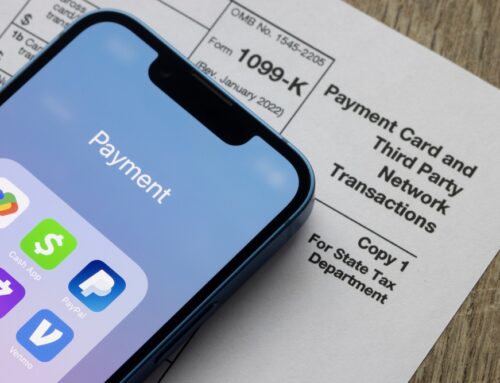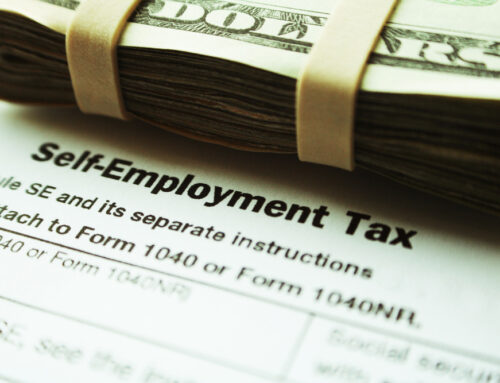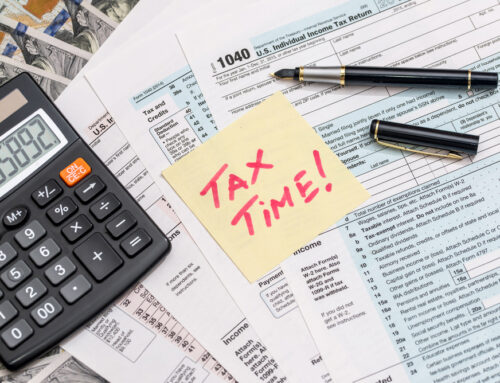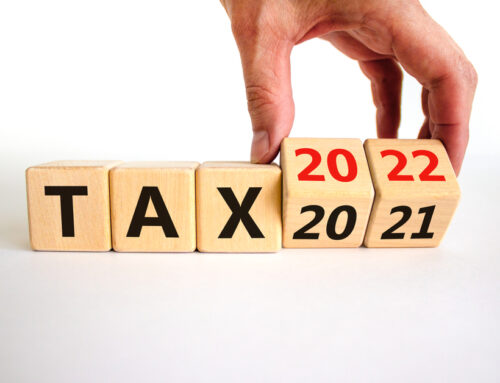Business deduction strategies
Your goal should be to get the IRS to owe you money. Of course, the IRS is not likely to cut you a check for this money (although in the right circumstances, that will happen), but you’ll realize the cash when you pay less in taxes.
Here are six powerful business tax-deduction strategies that you can easily understand and implement before the end of 2021.
- Prepay expenses using the IRS safe harbor
IRS regulations contain a safe-harbor rule that allows cash-basis taxpayers to prepay and deduct qualifying expenses up to 12 months in advance without challenge, adjustment, or change by the IRS. Under this safe harbor, your 2021 prepayments cannot go into 2023.
For a cash-basis taxpayer, qualifying expenses include lease payments on business vehicles, rent payments on offices and machinery, and business and malpractice insurance premiums.
Example: You pay $3,000 a month in rent and would like a $36,000 deduction this year, so on Friday, December 31, 2021, you mail a rent check for $36,000 to cover all of your rent for 2022. Your landlord does not receive the payment in the mail until Tuesday, January 4, 2022. Here are the results:
- You deduct $36,000 in 2021 (the year you paid the money).
- The landlord reports taxable income of $36,000 in 2022 (the year they received the money).
You get what you want (the deduction this year) and the landlord gets what they want (next year’s entire rent in advance, eliminating any collection problems while keeping the rent taxable in the year it is expected it to be taxable).
Don’t surprise your landlord: if they had received the $36,000 of rent paid in advance in 2021, they would have had to pay taxes on the rent money in tax year 2021.
- Stop billing customers, clients, and patients
One rock-solid, time-tested, easy strategy to reduce your taxable income for this year is to stop billing your customers, clients, and patients until after December 31, 2021. (We assume here that you or your corporation operates on a cash basis and calendar year.)
Customers, clients, patients, and insurance companies generally don’t pay until billed. Not billing customers and patients is a time-tested tax-planning strategy that business owners have used successfully for years.
Example: Jim, a dentist, usually bills his patients and the insurance companies at the end of each week. This year, however, he sends no bills in December. Instead, he gathers up those bills and mails them the first week of January. Now he has postponed paying taxes on his December 2021 income by moving that income to 2022.
- Buy office equipment
With bonus depreciation now at 100 percent along with increased limits for Section 179 expensing, buy your equipment or machinery and place it in service before December 31 and get a deduction for 100 percent of the cost in 2021.
Qualifying bonus depreciation and Section 179 purchases include new and used personal property such as machinery, equipment, computers, desks, chairs, and other furniture (and certain qualifying vehicles).
- Use your credit cards
If you are a single-member LLC or sole proprietor filing Schedule C for your business, the day you charge a purchase to your business or personal credit card is the day you deduct the expense. Therefore, as a Schedule C taxpayer, you should consider using your credit card for last-minute purchases of office supplies and other business necessities.
If you operate your business as a corporation, and if the corporation has a credit card in the corporate name, the same rule applies: the date of charge is the date of deduction for the corporation.
But if you operate your business as a corporation and you are the personal owner of the credit card, the corporation must reimburse you if you want the corporation to realize the tax deduction, and that happens on the date of reimbursement. Thus, submit your expense report and have your corporation make its reimbursements to you before midnight on December 31.
- Don’t assume you are taking too many deductions
If your business deductions exceed your business income, you have a tax loss for the year. With a few modifications to the loss, tax law calls this a net operating loss (NOL).
If you are just starting your business, you could very possibly have an NOL. You could have a loss year even with an ongoing, successful business.
You used to be able to carry back your NOL two years and get immediate tax refunds from prior years, but the Tax Cuts and Jobs Act (TCJA) eliminated this provision. Now, you can only carry your NOL forward, and it can only offset up to 80 percent of your taxable income in any one future year.
What does all this mean? You should never stop documenting your deductions, and you should always claim all your rightful deductions. Far too many business owners, especially new owners, don’t claim all their deductions when those deductions would produce a tax loss.
- Deal with your qualified improvement property
In the CARES Act, Congress finally fixed the qualified improvement property (QIP) error that it made when enacting the TCJA.
QIP is any improvement made by the taxpayer to the interior portion of a building that is non-residential real property (think office buildings, retail stores, and shopping centers) if you place the improvement in service after the date you place the building in service.
The big deal with QIP is that it’s not considered real property that you depreciate over 39 years. QIP is 15-year property, eligible for immediate deduction using either 100 percent bonus depreciation or Section 179 expensing. To get the QIP deduction in 2021, you need to place the QIP in service on or before December 31, 2021.
Planning note: If you have QIP property on an already filed 2018 or 2019 return that has not been amended, it’s on that return as 39-year property. You need to fix that, and likely add some cash to your bank account because of the fix.
Tax reduction strategies
Remember to consider your Section 199A deduction in your year-end tax planning.
If you don’t, you could end up with an unsatisfactory $0 for your deduction amount. We’ll review three year-end moves that reduce your income taxes and boost your Section 199A deduction at the same time.
If your taxable income is above $164,900 (or $329,800 on a joint return), then your type of business, wages paid, and property can reduce and/or eliminate your Section 199A tax deduction.
If your deduction amount is less than 20 percent of your qualified business income (QBI), then consider using one or more of the strategies described below to increase your Section 199A deduction.
Strategy 1: Harvest capital losses
Capital gains add to your taxable income, which is the income that:
- determines your eligibility for the Section 199A tax deduction
- sets the upper limit (ceiling) on the amount of your Section 199A tax deduction
- establishes when you need wages and/or property to obtain your maximum deductions
If the capital gains are hurting your Section 199A deduction, you have time before the end of the year to harvest capital losses to offset those harmful gains.
Strategy 2: Make charitable contributions
Since the Section 199A deduction uses taxable income for its thresholds, you can use itemized deductions to reduce and/or eliminate threshold problems and increase your Section 199A deduction.
Charitable contribution deductions are the easiest way to increase your itemized deductions before the end of the year (assuming you already itemize).
Strategy 3: Buy business assets
Thanks to 100 percent bonus depreciation and Section 179 expensing, you can write off the entire cost of most assets you buy and place in service before December 31, 2021.
This can help your Section 199A deduction in two ways:
- The big asset purchase and write-off can reduce your taxable income and increase your Section 199A deduction when it gets your taxable income under the threshold.
- The big asset purchase and write-off can contribute to an increased Section 199A deduction if your Section 199A deduction currently uses the calculation that includes the 2.5 percent of unadjusted basis in your business’s qualified property. In this scenario, your asset purchases increase your qualified property, which in turn increases your 199A deduction.
Planning ahead
2021 is quickly coming to a close, and some of these year-end strategies may be helpful for you and your business tax situation. As we move into 2022, Wych Tax has your back when it comes to planning ahead and setting you up with financial confidence and success from the beginning to the end. If you have any questions about year-end planning or tax strategies moving forward, please reach out to us at 970-223-0792 or visit our website to schedule an appointment.






